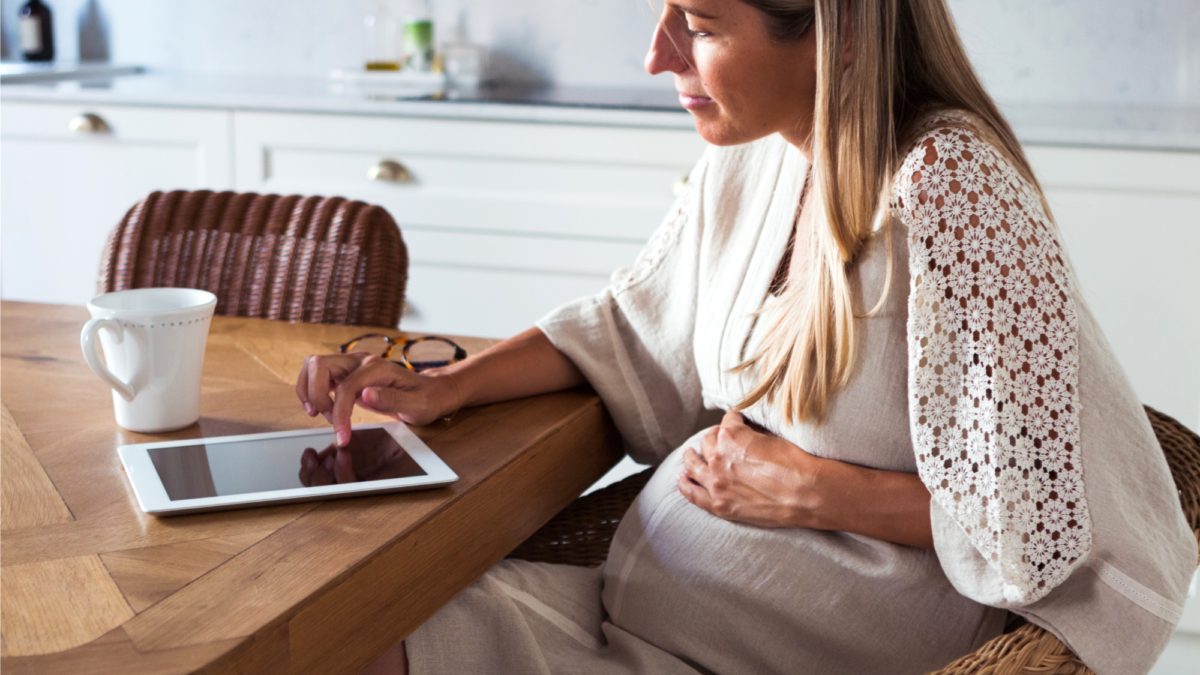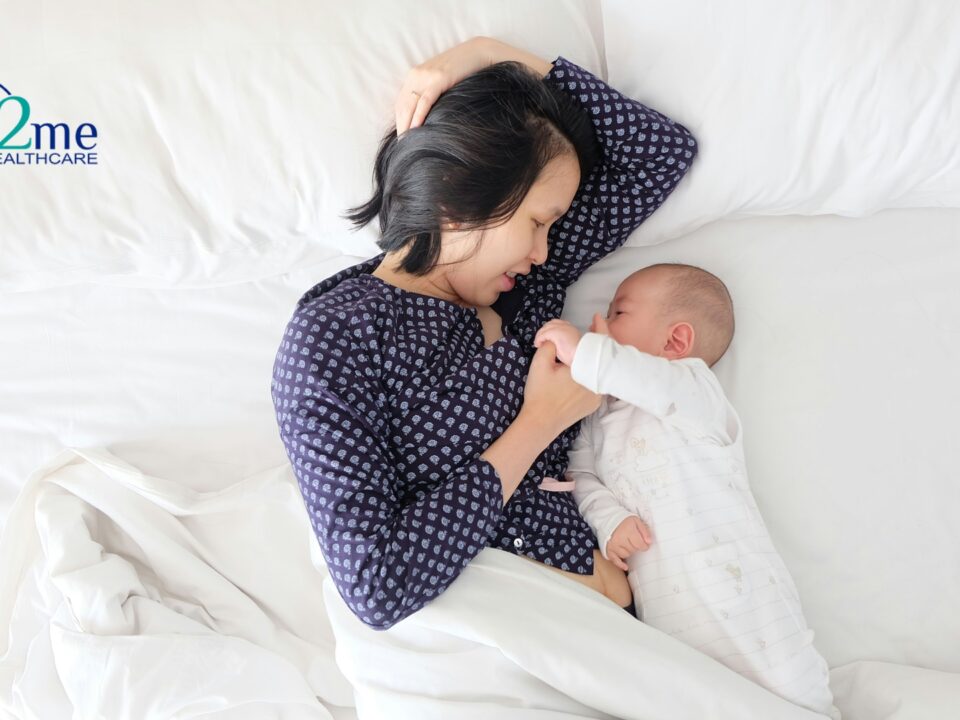Navigating Pregnancy with Endometriosis

7 Ways Your Second Pregnancy Can Be Different Than Your First
November 5, 2021
What Is a Doula, and What Part Can They Play in Your Pregnancy Journey?
January 13, 2022For women with endometriosis, pregnancy often comes with a rollercoaster of emotions unlike any other. Many people with endometriosis are concerned about infertility and the effects that their condition may have on their pregnancy and their child. However, you don’t need to lose hope simply because you have endometriosis. With experienced, caring healthcare providers, you can handle your condition with reduced risk of complications and experience the joys of becoming a mother.
The combination of endometriosis and pregnancy may cause difficulties becoming pregnant, miscarriage, or preterm labor. But there are many women with endometriosis who can conceive healthy, happy babies. Read on to learn more about how you can navigate pregnancy with endometriosis.
Possible Pregnancy Complications with Endometriosis
Although the majority of women with endometriosis will have normal pregnancies, there is a slight possibility that complications may arise. As with any pregnancy, it can help to educate yourself about potential side effects or complications in advance. Here are particular complications that may arise with endometriosis.
Difficulty Conceiving
About 75% of women with severe endometriosis can conceive, though it typically takes those with endometriosis longer to become pregnant. Scientists are unsure why endometriosis can cause difficulty conceiving. Many speculate that the scar tissue may make it challenging for the egg to travel through the fallopian tubes, while others believe that inflammation of the pelvis decreases the lifespan of sperm.
25% of women who have endometriosis are never diagnosed and don’t realize that they have the condition until they are ready to become pregnant. If you have been unsuccessful in conceiving, your doctor may recommend a laparoscopy, intrauterine insemination (IUI), or in vitro fertilization (IVF).
Miscarriage
All pregnancies carry some risk of miscarriage, particularly in the early stages. However, people with endometriosis have a slightly higher risk of miscarrying than those without the condition. Studies from 2017 have shown that people with endometriosis have a 35.8% chance of miscarrying, while those without have a miscarriage rate of 22%. Before your pregnancy reaches the 12-week mark, keep an eye out for the signs of miscarriage, which typically resemble a menstrual cycle with symptoms including bleeding, low back pain, and cramping. After 12 weeks, these symptoms are typically more severe.
Preterm Birth
People with endometriosis should also consider the possibility of preterm delivery when they’re expecting. A birth is deemed preterm when the child is born before 37 weeks of gestation, and people with endometriosis are 1.5 times more likely to have a preterm birth. Premature babies typically have a lower birth weight and an increased risk of health or developmental delays. If you suffer from endometriosis, pay close attention to early labor symptoms and contact your doctor immediately.
Placenta Previa
When the placenta and fetus form during pregnancy, the placenta provides an influx of oxygen and nutrients to the fetus. During a normal pregnancy, the placenta will be a safe distance away from the cervix and attached to the uterine walls. However, people with endometriosis are at a higher risk of experiencing placenta previa, which occurs when the placenta is too close to the opening of the cervix. Placenta previa is a serious life-threatening condition, so it is of the utmost importance that expectant people with endometriosis alert their doctor if they notice any bright red bleeding. If you have placenta previa and begin experiencing heavy bleeding, doctors recommend a blood transfusion or an emergency C-section. When the bleeding is minimal, doctors recommend limiting your physical activity levels to reduce risks.
Discussing Pregnancy and Endometriosis with Your Doctor
Whether you’re still attempting to conceive or you’re already pregnant, you must take the time to discuss your symptoms with your doctor. There’s no need to be embarrassed or nervous — your healthcare providers are here to help. The most important thing is that you express your concerns clearly and specifically. You can even keep a journal detailing when your symptoms occur, to help providers get a clear picture of your condition.
Eventually, you will need to discuss your pregnancy and endometriosis with your doctor. However, it is essential to note that endometriosis may be confused with other conditions, like ovarian cysts or pelvic inflammatory disease. Ensure that your doctor performs a preconception checkup so that you get the treatment that you need. If you appear to have endometriosis and you’re not already pregnant, your doctor may recommend a laparoscopy to confirm your diagnosis and remove excess scar tissue to increase your chances of conceiving.
Most women with endometriosis notice their symptoms decrease during pregnancy. Health specialists speculate that this is caused by the fact that a woman’s progesterone levels rise and inhibit the production of endometriotic tissue during pregnancy. Once the baby is born, women that breastfeed will benefit from the estrogen released from the ovaries because this hormone prevents the growth of endometrial lesions and ovulation. The relief that pregnancy brings typically fades after delivery, and some women experience their symptoms once more when their menstrual cycle begins. Keep your healthcare team apprised of your changing symptoms throughout your pregnancy and beyond to make the experience as safe and comfortable as possible.
Advice for Pregnancy and Endometriosis
Most women are raised to believe that pregnancy is something that happens quickly. We are raised to err on the side of caution to avoid an unplanned pregnancy. For women with endometriosis, challenges becoming pregnant can be devastating to the mental health, self-esteem, and their overall sense of womanhood — especially in a society that may associate the value of a woman with her ability to conceive. Furthermore, women that are diagnosed with endometriosis are often only provided with advice regarding pain management, not becoming pregnant.
Throughout the process, remember to be patient and kind with yourself. If you feel that your doctor is ignoring your concerns, state that you are uncomfortable with their treatment plan and ask for a referral to another doctor. Seek the support of other women with endometriosis who are on their pregnancy journey to combat feelings of isolation and depression. And lastly, don’t lose hope! There are many success stories of women with endometriosis who have become pregnant after years of trying and given birth to perfectly healthy babies. You could be one of them!
2Me Healthcare
Many women dream of starting a family and becoming a mother, and it is possible, even with endometriosis. However, working with qualified, experienced doctors is an important part of your journey. If you’re in need of a knowledgeable healthcare provider that prioritizes your needs as a woman with endometriosis, contact 2Me Healthcare today. We’re ready to support, educate, and care for you throughout your pregnancy journey.
Marketing by Joseph Studios




